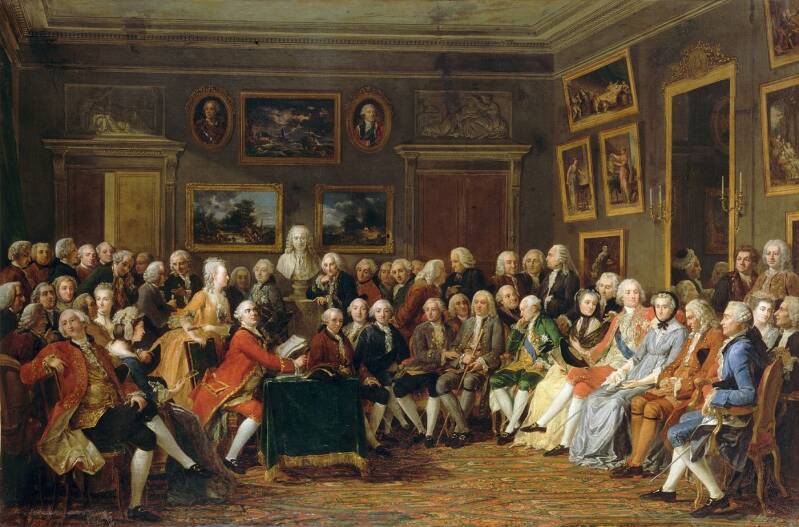Shamanism and science, intuition and reason, two approaches that are considered at odds with each other. Both are practices that aim to understand our world, and at one time they appear to have been one and the same.
However, with the rise of science in the enlightenment, this marked a definitive separation where logic, reason, rationality, and experimentation became the primary approach. The whole universe was measurable through the medium of mathematics, the motion of heavenly bodies right down to atoms could be predicted, measured, and manipulated. Technological innovation, engineered by this practice, would transform our world granting medicines, comforts, and opportunities our ancestors could only dream of. Wealth and abundance would flow like never before, and the scale of civilisation would grow in the likes never seen before. The mastery over the natural world as pioneered by science and scientific thought seem unchallengeable in its results yet it has left us wanting.

In the Salon of Madame Geoffrin in 1755. Reading of Voltaire's tragedy, The Orphan of China, in the salon of Marie Thérèse Rodet Geoffrin, by Anicet Charles Gabriel Lemonnier, c. 1812
In a universe where all is quantifiable and predictable, where we can manipulate every facet of our environment to our whim, it would appear that, in the words of Nietzsche, God is dead, that sacrality and mysticism is an illusion. We are left in an empty world, devoid of meaning and purpose. This is the experience of a profane and desacralized world, the experience of much of modernity. The truth is that this is not an experience the majority of people find appealing or relate to. No one is wholly profane; people see meaning in what others may see as meaningless. As Eliade puts it:
‘This experience of profane space still includes values that to some extent recall the non-homogeneity peculiar to the religious experience of space. There are for example, privileged places, qualitatively different from all others- a man’s birthplace, or the scenes of his first love, or certain places in the first foreign city he visited in youth. Even for the most frankly non-religious man, all these places still retain exceptional, a unique quality; they are the ‘holy places’ of his private universe’ Eliade, M., 1987. The Sacred and the Profane: The Nature of Religion. Harcourt: New York. Pp 24.

Frederick John Widgery, 1953, Sacred Circle, Mis Tor, Langstone Moor, Dartmoor
Each of us exist in a world unique to us with items, words, and places that have special meaning. Our relationships with others, our experiences, our hopes and dreams, our lived experiences create a world that is embedded with meaning. A world not too dissimilar from the religious and the sacred yet still highly specific to each individual.
What is often forgotten is that science, like most of our world views, is built on a specific set of philosophical beliefs (primarily mathematical and materialist). These beliefs have produced results in the external world but are limited to this and fail to truly touch the spirit of humanity. It resigns the human being to the realms of an intelligent but predictable animal whose purpose is to fulfil only the basic necessities of life to perpetuate its survival.
When the world is viewed through a different philosophical lens such as that of animism or one of the major religions, we see a world suffused with meaning and purpose. We find methods and traditions permeated with both this meaning and purpose which can help us navigate this world and the deepest parts of ourselves. Here in what is often described as sacred space we find healing of an emotional, mental, and spiritual nature.

Malo-Renault, 1910, Le Mont Saint-Michel, à marée haute, eau-forte en couleur
In the words of Cary F Baynes’ preface to ‘The Secret of the Golden Flower: ‘Mastery of the inner world, with a relative contempt for the outer, must inevitably lead to catastrophes. Mastery of the outer world, to the exclusion of the inner, delivers us over to the demonic forces of the latter and keeps us barbaric despite all outward forms of culture… We have to see that the spirit must lean on science as its guide for the world of reality, and science must turn to the spirit for the meaning of life’ – Wilhelm, R., 1962. The Secret of the Golden Flower; A Chinese Book of Life. Harper One: Boston/ New York. Pp viii.


Add comment
Comments